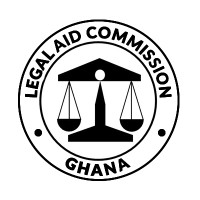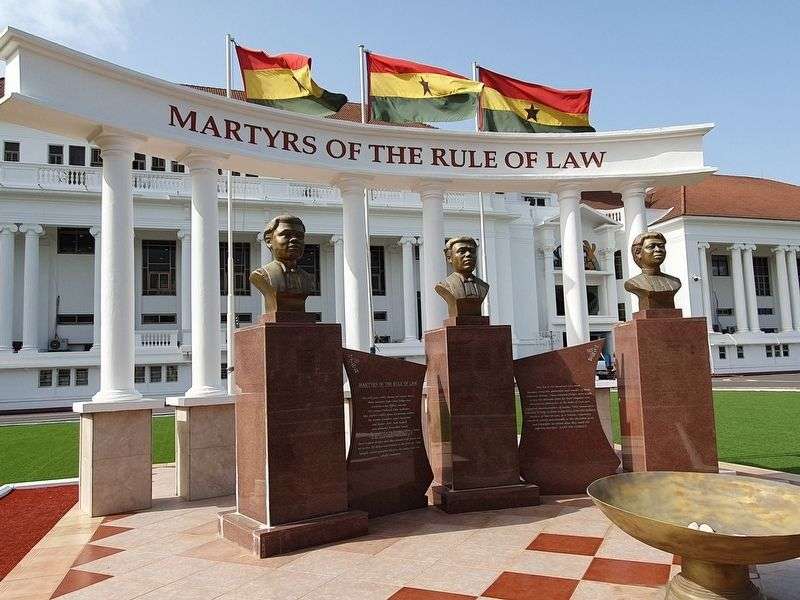The issue of legal aid in Ghana has once again come under sharp public scrutiny following a scathing assessment by lawyer and activist Oliver Mawuse Barker-Vormawor.
He insisted that bail delay and denial are not isolated mishaps but rather a reflection of a broken justice system where poverty dictates outcomes.
According to Barker-Vormawor, Ghana’s current infrastructure for legal representation is so inadequate that justice has effectively become a privilege reserved for the wealthy.
“In Ghana, this isn’t fiction. It’s daily reality. Our legal system is rigged against the poor. With just under 50 legal aid lawyers for a population of over 32 million people, justice has become a luxury good. If you’re rich, you walk free. If you’re poor, you go to jail.”
Oliver Mawuse Barker-Vormawor
He explained that once a person enters the criminal process without a lawyer, the system becomes a trap.

Almost 98 percent of those without representation, he indicated, eventually end up incarcerated.
Without a legal advocate to argue for bail, contest charges, or defend innocence, conviction becomes almost automatic. For him, “innocence becomes irrelevant. What matters is that you had no defence.”
Pipeline To Prison
Oliver Barker-Vormawor further portrayed the injustice within Ghana’s justice system as a conveyor belt that funnels the poor straight into prison.
He argued that the process begins in communities that are heavily policed yet deprived of resources, moves through courts that lack the capacity to deliver fair trials, and ultimately deposits people in overcrowded and violent prisons.
There, thousands — including children — languish for years awaiting trial, not because they are guilty, but because they have no legal representation to defend them.
Central to this dysfunction, he argued, is the collapse of the Legal Aid Commission — the one state institution intended to ensure equitable access to justice.
He lamented that while the Commission was created to guarantee that justice is a right and not a privilege, it has been reduced to “an empty promise in a land full of laws.”

Today, Ghana’s legal aid resources are stretched beyond reason. Barker-Vormawor highlighted the disturbing fact that Greater Accra, the nation’s most populous region, has fewer than 11 legal aid lawyers, while six regions have none at all.
To him, this is not just neglect but an outrage. Citizens forced to face the immense power of the state without legal support are stripped of dignity and protection.
Justice System Criminalizes Poverty Amid Legal Aid Scarcity
In Barker-Vormawor’s analysis, the inadequacies of legal aid have created a justice system that directly criminalises poverty.
Vulnerable groups — from young men in Zongo communities to single mothers exploited by landlords, or protesters arrested for seeking reforms — all find themselves at the mercy of a process where, as he puts it, “silence is conviction, and delay is punishment.”
Yet he believes the system is not beyond repair. With deliberate political will and resources, the so-called prison pipeline can be dismantled.
“We can break the prison pipeline. We can end the cycle of silence. If Parliament commits to serious investment, we can build a legal aid system that protects the weak, holds the powerful accountable, and restores faith in the rule of law.”
Oliver Mawuse Barker-Vormawor

To address the crisis, Barker-Vormawor laid out a bold roadmap. He insisted that Parliament and the executive must prioritize the recruitment of at least 750 new public defenders across Ghana within the next five years.
Furthermore, he called for the abolition of the means test in all criminal matters, arguing that legal representation should never be treated as a favour but must remain a fundamental right.
He also advocated funding paralegal and community legal services, ensuring that access to justice extends beyond cities to every village.
For him, this vision represents a legacy worth pursuing. “This is the legacy I demand of a Left Government!”
Without urgent reform, Barker-Vormawor warned, Ghana risks perpetuating a system where dignity is stolen from the poor while the powerful exploit loopholes.
He maintained that without proper state funding for legal aid and guaranteed access to lawyers for every citizen, Ghana cannot genuinely call itself a society governed by laws.
Instead, he said, the nation functions more like a “country of luck’, where in the “lottery of abuse”, it is always the poor who suffer the most.“The ORALIST have teams of lawyers, the poor have no one. Let’s fix this.”



















